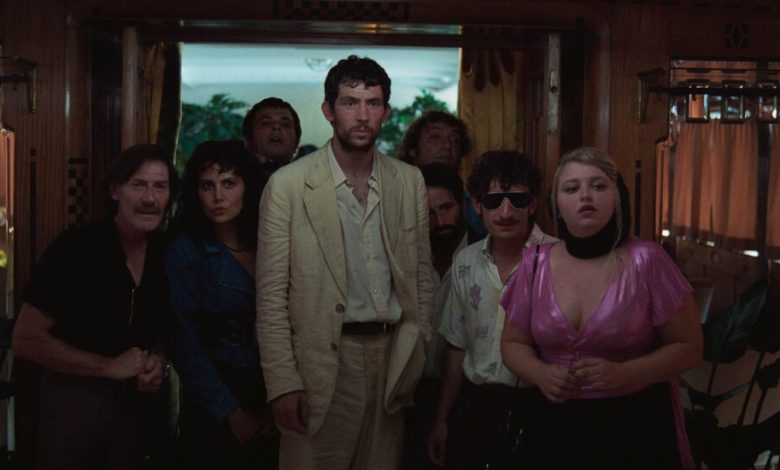‘La Chimera’ Review: A Treasure Trove

Like the yellow brick road, the bright red thread in “La Chimera” winds through a world that is both dreamy and touched by magic. The thread has begun unraveling from a long knit dress worn by a woman beloved by the movie’s hero. It trails across the ground, flutters in the air and beguiles you, just like this film. And, like all loose threads — in fraying fabric and in certain stories — this slender cord tempts you to pull it, urging you to see what happens next.
“La Chimera” is the latest from Alice Rohrwacher, a delightfully singular Italian writer-director who, with just a handful of feature-length movies — the charming, low-key heartbreaker “Happy as Lazzaro” among them — has become one of the must-see filmmakers on the international circuit. Rohrwacher, who grew up in central Italy, makes movies that resist facile categorization and concise synopsis. They’re approachable and engaging, and while she’s working within the recognizable parameters of the classic art film — her stories are elliptical, her authorship unambiguous — there’s nothing programmatic about her work.
Set in the 1980s, “La Chimera” centers on Arthur (a fine Josh O’Connor), a dejected British tomb raider who lives in rural Italy where he uses a dowsing stick to find buried treasures. When you first see him, he is asleep on a train en route to the village where he lives in a shack, a muddle of junky odds and ends that he’s set against the exterior of the town’s medieval wall. It’s a suitable liminal space for Arthur, whose suits hang forlornly off his body. He never comfortably fits in anything or anywhere or with anyone, whether he’s roaming about with a brotherly band unearthing antiquities or watching women roam in and out of a faded villa.
His lover, Beniamina (Yile Vianello), has gone missing, though it’s unclear why or when. Even so, she remains stubbornly present both for Arthur (including in his dreams) and for her mother, Flora (the sublime Isabella Rossellini), a dowager who lives in a crumbling villa, a glorious wreck with a leaky roof where she keeps an altar dedicated to her errant daughter. Beniamina may be — as the title suggests — an illusion. At the very least, she is a seductive mystery, one that Rohrwacher teases in a movie that playfully meanders here and there, engages with history and mythology, addresses cultural patrimony and commercial plunder and loosely recasts the myth of two other separated lovers, Orpheus and Eurydice.
Once Arthur returns to the village, he resumes his old life and former illegal ways. He visits Flora, where he and a music student-servant, Italia (Carol Duarte), soon catch each other’s eye. They flirt and spend time together, and Italia, in one of the story’s more rambling interludes, helps establish a communal squat filled with women and children in an abandoned train station. (Rohrwacher is an idealist.) At the same time, Arthur also picks up with his gang of tomb raiders — tombaroli in Italian — a largely male group who live on the margins, a space where Rohrwacher likes to linger, though sometimes nearly gets lost in.
The story emerges in bits and pieces — in conversations, expressive faces, penetrating details, faded frescoes and self-mythologizing folk songs — that don’t immediately reveal an overarching narrative logic. Characters rarely explain anything here; instead they chat, sing, trade looks and share caresses that create a tangible sense of the present, one that is always imbricated with the past. In Italy, history constantly burbles up from the very earth; the tomb raiders never dig too long or deeply. History is also in people’s DNA, in their ballads, on their frescoed walls, in the stonework of their traditional homes and in all the stolen (or, arguably, reclaimed) antiquities that, shattered and not, summon up an alternative universe.
